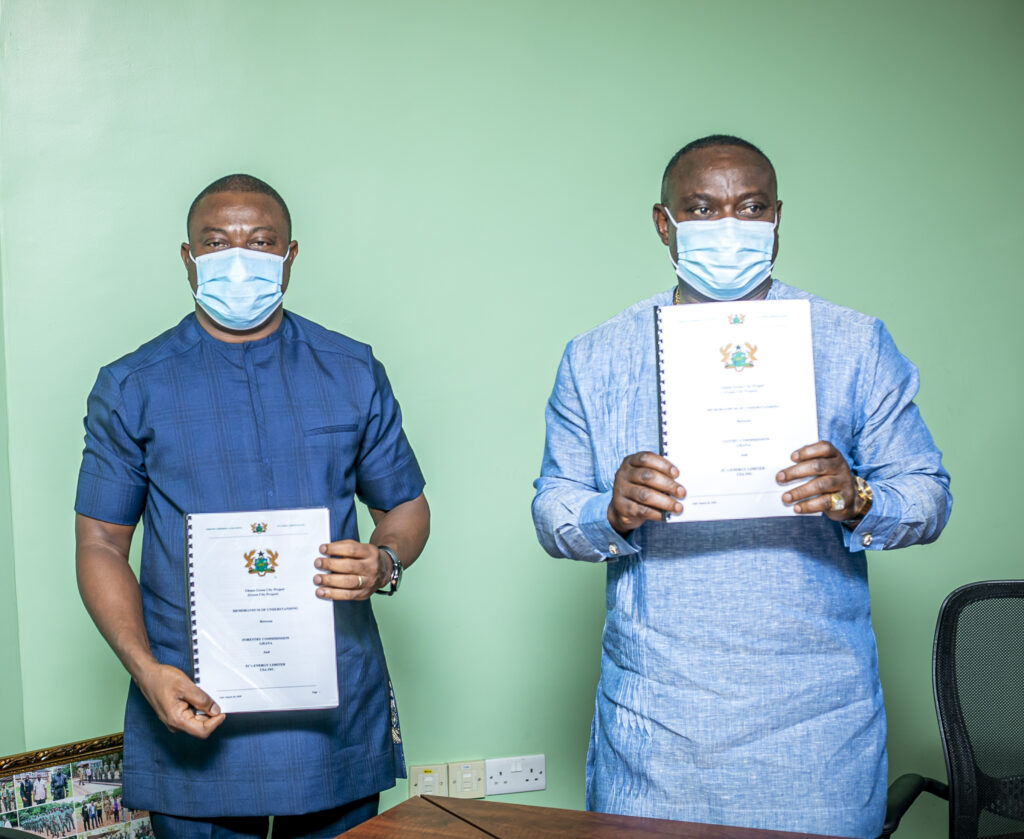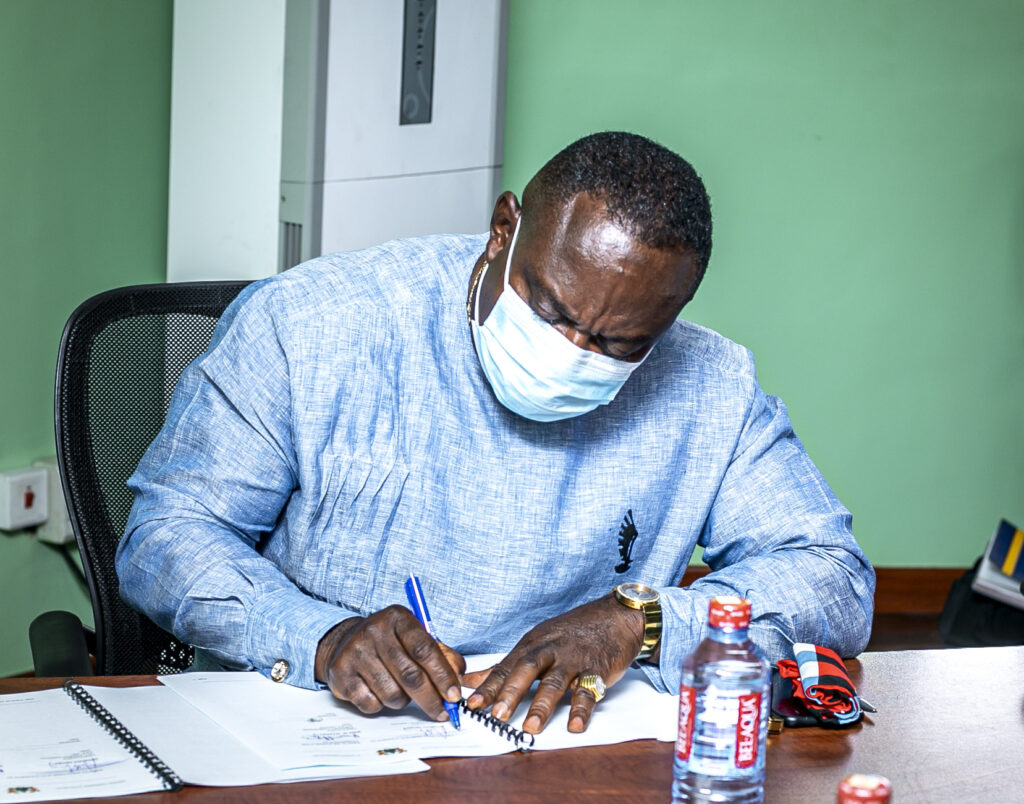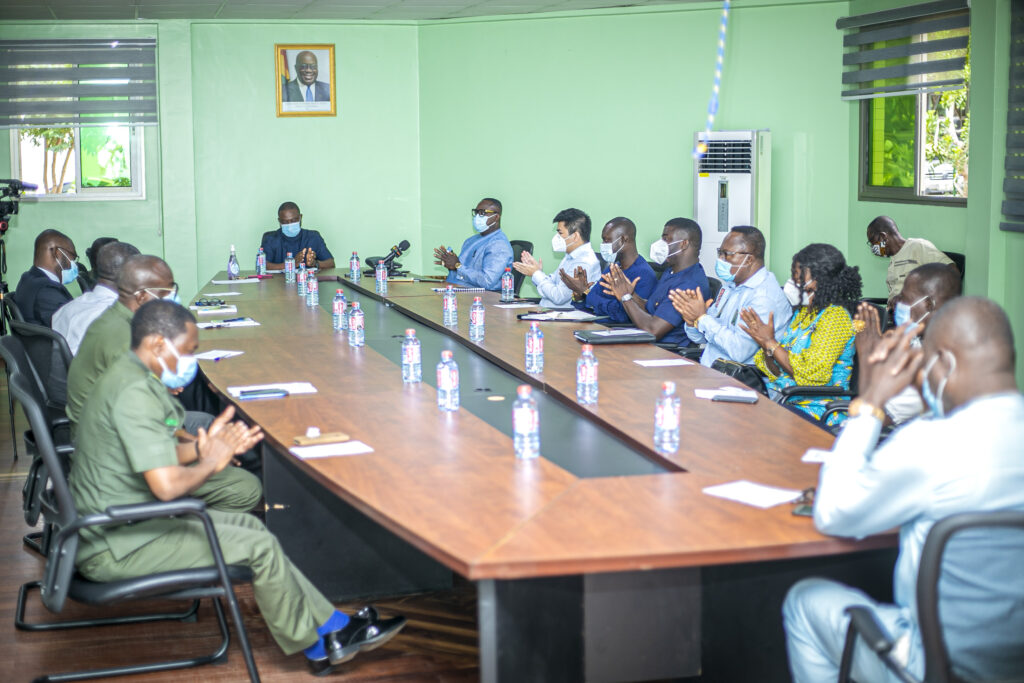Forestry Commission, TC’S Energy signs deal to transform Digya national park
The Forestry Commission has signed a memorandum of understanding with TC’S Energy Limited USA Inc to turn the country’s second-biggest national park, the Digya park in the Bono Region into a green city resort.
With the support of Chinese infrastructure giants, Sinohydro, the partners want to make the almost 3,500 kilometre-park West Africa’s biggest eco-resort with $11 billion investment.
While the Chief Executive of the Forestry Commission, Mr Anthony Opoku, signed the document on behalf of the commission, Mr Anthony Opoku, the Chief Executive Officer, of TC’s Energy endorsed it on behalf of the renewable energy company.

When completed by 2027, it will facilities including railway lines, security settlements, suspended water walks facilities and cruising, forest walk trails, golf parks, African art craft villages, bird watching facilities, natural museum, eco-lodges and luxury hotels.
The other attractions to be included in the ambitious project are casinos, health SPA, meditation enclaves, children’s / amusement park, restaurant (local and international), theatre and conferencing facilities, movie zones, silhouettes (night clubs, discos, supermarkets).
With alluring greenery, wide attractive landforms, a high presence of mammal species – elephants, manatees and six primate species (monkey (over 200 bird species, and also close to crossroads of a number of tourist routes in eastern and central Ghana, the Chief Executive Officer of the Forestry Commission, Mr John Allotey, said the prospects look good.

He said the project forms part of the commission’s effort to move from dependency on timer resources.
“As a result of Forestry Commission’s re-constitution and a shift in orientation, the need arose to improve its revenues to meet its own funding requirements through tourism development and promotion within Protected Areas, and with greater private sector participation.
“The Commission is therefore vigorously pursuing the development of responsible, nature-based tourism to source for funds to further conserve and run protected areas,” he said
Currently, three of the country’s parks—the Shai Hills, Mole and Kakum offer eco-tourism adventures.
He said the establishment of the Green City comes with numerous benefits as it would open up the region, create jobs which would rake in revenue for the government in the form of taxes and the development of the local economy.
While the resistance against eco-tourism sites have always been the destruction forests, Mr Allotey said the case of the Green City would be different.
“All these come with its multiplying effects on the country as a whole. we have not lost sight of the fact that while developing the Green City, we should also keep our forest intact. That is why it is a “Green” city and indeed it will be so.
“Trees will be felled when it is extremely necessary at the project site and more will be replanted to replace the lost ones to keep the forest intact,” he said.
For his part, the Chief Executive of TC’s Energy, Anthony Opoku, said the company had the capacity, knowledge, the technical support and the financial muscle to execute the project.
“When we first engaged we decided that we form a partnership and it’ll become a joint venture between TC Energy USA and the Forestry Commission. We want the commission to be self-sustaining and earned revenue from the project.
“The aim is to create jobs and develop our forest resources,” he said.
FACT SHEET
- The Digya National Park is Ghana’s oldest wildlife reserve. It was established in 1900.
- But was gazetted as a national park in 1971.
- It is the only protected area in Ghana which is bordered by the Lake Volta.







